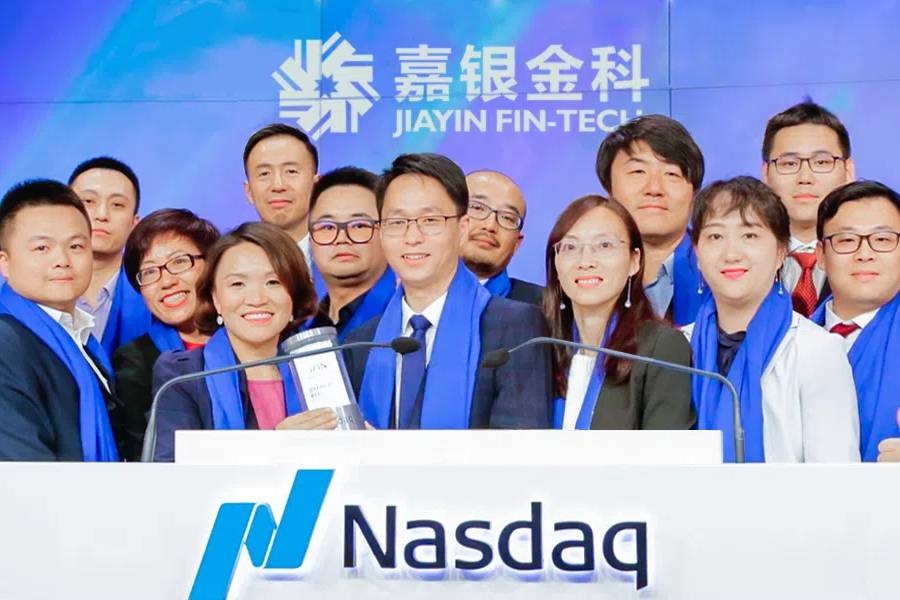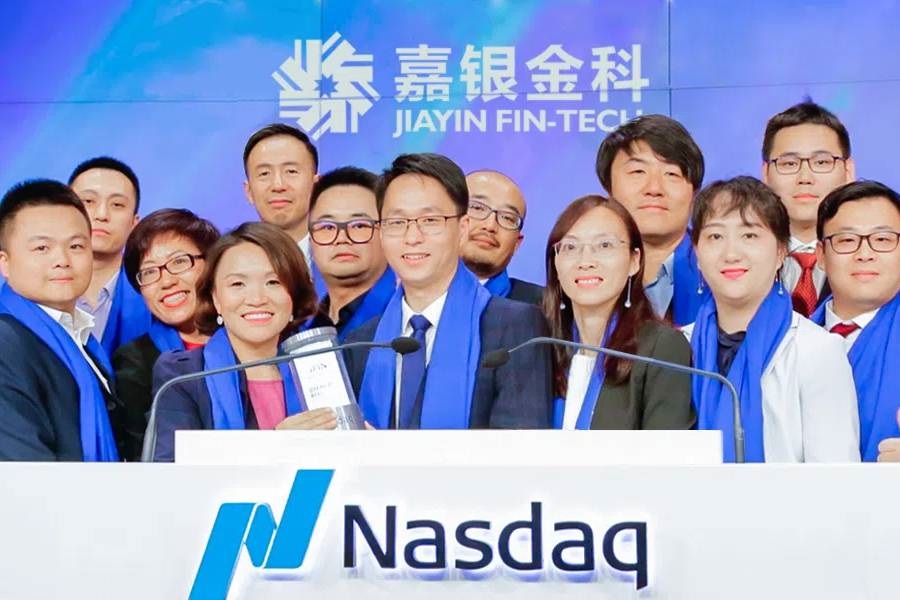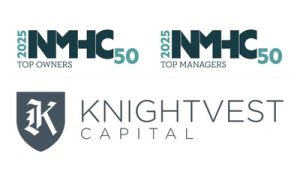

The fintech lender’s revenue from its main business jumped in last year’s fourth quarter as China rolled out a series of measures to stimulate its economy
Key Takeaways:
- Jiayin’s revenue from its main loan facilitation services rose 46% in last year’s fourth quarter as it predicted more strong growth for that business this year
- The company’s business boomed as Chinese policymakers sought to boost the country’s economy through a new series of private consumption stimulus measures
Beijing’s efforts to revive the Chinese economy are breathing new life into a previously embattled group of private small lenders that focus on providing financing for average Joes.
That group of beneficiaries includes Jiayin Group Inc. (JFIN.US), which operates an online platform for consumer loans. The company’s revenue from its main loan facilitation services jumped 46% year-on-year in the fourth quarter of last year to 1.1 billion yuan ($154 million), according to its latest results released last Thursday. It also predicted continued strong growth for its core business this year, forecasting its loan facilitation volume would grow about 40% from 2024 levels.
Jiayin’s business boomed as the Chinese government kept busy toward the end of last year rolling out a steady stream of measures to stimulate the world’s second-largest economy, which has slowed notably after years of rapid growth. A key focus for policymakers lately has been boosting domestic consumption to reduce China’s heavy reliance on exports and foreign investment, which have become less dependable these days amid growing global protectionism and shrinking foreign direct investment (FDI).
One key program to boost consumer spending offers rebates to consumers when they trade in their old home appliances and smartphones for new ones. Government workers also received surprise wage increases in January, and just last month the government unveiled a grand program dubbed a “Special Action Plan to Boost Consumption.”
“In 2024, China’s macroeconomic demonstrated steady growth with consumer credit demand rising steadily, supported by consumer stimulus policies,” Jiayin CEO Yan Dinggui said on the company’s earnings conference call.
Yan’s mention of the word “consumer” twice in such a short remark underscores the importance of Beijing’s consumption-oriented policies for Jiayin. Essentially, as the government tries to increase consumers’ disposable income, they will feel more comfortable about spending and more confident about borrowing through companies like Jiayin to finance their purchases.
Headlines on all the economic stimulus measures have lifted shares of Jiayin and its peers with similar business focuses. Jiayin’s stock has more than doubled in the past year, while U.S.-listed shares of Qifu Technology (QFIN.US; 3660.HK) have surged more than 140%. FinVolution (FINV.US) is also up about 90%.
Despite the big jump in loan facilitation revenue, Jiayin’s overall revenue actually fell in last year’s fourth quarter. But that’s a result of what may be a good shift in the company’s business strategy to reduce its exposure to loan default risks. In the final three months of 2023, Jiayin booked revenue of 669 million yuan from a reversal of loan guarantees, which amounted to more than 40% of its total revenue for the period.
Here’s what this means. The company sets aside a certain amount of money to cover potential defaults on loans it distributes under arrangements with banks and other financial institutions that provide actual money for those loans. When the amount of actual defaults is smaller than the amount of provisions, Jiayin records the difference as revenue.
Overly conservative
The fact that the revenue gain from reversed loan guarantees was so large in the fourth quarter of 2023 means that the underlying financial health of Jiayin’s borrowers turned out to be much better than it had anticipated during that period. The company was probably overly conservative, but that’s hardly a bad thing in the current climate of economic uncertainty.
In the fourth quarter of last year, such revenue gains from reversed loan guarantees dropped about 77% to 157 million yuan to account for just 11% of Jiayin’s total revenue. This appears to owe to a strategic shift to scaling down the company’s loan guarantees, which CFO Fan Chunlin said on the earnings call was a “deliberate” move.
In other words, Jiayin is looking to dole out more loans without shouldering the liability for potential defaults, lowering key risks. More importantly, the fact that a growing number of the company’s lending partners are willing to use Jiayin’s services without the company also offering protection against defaults suggests that they trust its risk management capabilities, which in large part draw on advanced technology including AI. And Jiayin’s loan delinquency rate is pretty low, which should give its lending partners plenty of reassurance.
Jiayin’s net profit fell 19% in last year’s fourth quarter to 1.06 billion yuan from 1.3 billion yuan a year earlier. But the drop was partly because of a one-off loss related to its disposal of a subsidiary. If it can continue to ride Beijing’s efforts to boost consumption, its bottom line should return to expansion, barring any future unexpected one-time costs.
Jiayin’s leadership is confident about its earnings prospects. It forecast its loan facilitation volume would reach between 137 billion yuan and 142 billion yuan this year, up sharply from 100 billion yuan in 2024. On the same day the company released its latest earnings, its board also put on another show of confidence by approving the company’s payment of as much as 30% of its net profit as dividends from this year.
Jiayin shares currently trade at a price to earnings (P/E) ratio of about 5, more or less in line with the multiples for China’s four biggest banks, which just received a huge boost from the Chinese government’s plan to provide them with fresh capital. But it lags the 7.8 P/E ratio for Qifu and the similar 7.7 for FinVolution, which are both expected to post relatively modest revenue growth this year in the 5% to 15% range.
The big state-owned banks cater to big businesses, most of them also state-owned, which creates a niche for companies like Jiayin to pursue consumer and small business borrowers that Beijing is now targeting with its stimulus measures. If the consumer story in China gains more traction, Jiayin’s valuation could continue to march higher — unless the stimulus measures run out of steam or simply fail to get people spending.
© 2025 Benzinga.com. Benzinga does not provide investment advice. All rights reserved.


